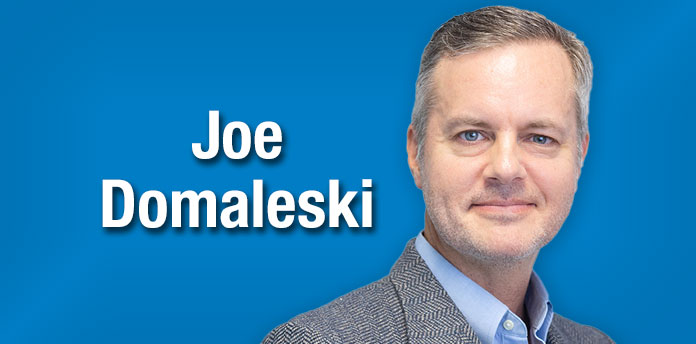Social media is everywhere, but what should a business leader do with it? Let’s define what it is. I really like this definition from Tufts University Office of Communications and Marketing – “Social media refers to the means of interactions among people in which they create, share, and/or exchange information and ideas in virtual communities and networks.”
An effective leader needs to be able to process information from a variety of sources to aid in better decision making. Leaders not only consume information, but they must be able to put out communications that are both official and informal in nature. Social media is one of the most effective ways to facilitate two-way communications.
The “social” part of social media is all about dialog, connectivity, and interactions. The “media” part refers to the different online channels and platforms for providing the interactions. Traditional media such as TV, radio, and print do not typically invite real-time dialog. Although one might make the case that traditional “letters to the editor” or a radio call-in program might be an early form of social media.
The early beginnings of social media go back to the late 90’s with website chatrooms and online forums. Social media as we know it really got its start with MySpace. MySpace launched in 2003 and became the go to place where people could quickly post online content, share it, and comment about it. Facebook is largely based on that same concept. Since that time, social media has become part of our modern culture.
For purposes of this article, I won’t debate whether social media is good or bad. Social media is widely used by people so today’s business leader needs to know how to use it. Here are some reasons you should consider keeping up with social media:
- Stay abreast of trends, new ideas, and what people are thinking
- Foster instant, online connections with others
- Share knowledge
- Promote ideas, products, and services
- Provide opportunities for branding and awareness
- Have fun and allow for creativity
- Improve online reputation and search results ranking (for companies)
Compared to other forms of traditional media, social media is very inexpensive from a monetary perspective. Frankly, the biggest expense is the time involved in keeping up with it. To help you make the most of your time, here’s how I use social media personally.
Facebook – I was an early adopter of Facebook shortly after it was opened up for general public use in 2008. Of all of the social media platforms I use, this one is used the most by my family and friends. The algorithm used to determine what a user sees has some well-known problems. This is not my favorite form of social media, but it is essential because so many people are on it. I mostly use it to keep up with family and friends by sharing personal life updates. I also participate in a few groups related to hobbies of mine. I rarely originate content on Facebook, but connect to it through Instagram. Facebook’s parent company is named Meta.
Instagram – I enjoy Instagram. Although it was bought out by Facebook (Meta), Instagram has enjoyed some autonomy and is centered around pictures (Posts) and short-form video content (Reels) with captions. I use it to keep up with friends and things of interest to me like hiking, amateur (ham) radio, travel, and fitness. It’s easy to find things on Instagram and to share things from Instagram to Facebook. Whereas the Facebook audience tends to be middled-aged (like me), Instagram is used by younger people – particularly millennials and some Generation Z. Because of the younger audience, I find Instagram is a good place to find out about new ideas, businesses, and what’s going on in my community. Instagram helps me know “what’s cool.”
Twitter – I don’t really like Twitter, especially now that it’s been purchased by Elon Musk who made some well-known blunders in trying to update the platform. Despite it’s flaws, it is the go-to place for breaking news and “trending” topics. I purposely avoid the political stuff and focus mostly on news and amateur (ham) radio stuff. I read more than I post.
YouTube – If you want to learn about something, go to YouTube which is a place where people can share longer form video content. You’ll find everything here – how-to, travel, entertainment, video blogs (VLOGS), humor, and more. Although YouTube recently launched their streaming YouTube TV service, I mostly use YouTube to learn about things. I also have my own YouTube channel where I share some of the adventures my wife Mary Catherine and I enjoy outdoors. Although many people have monetized their YouTube channels, we haven’t and don’t intend to do so.
LinkedIn – When it first came out, LinkedIn was mostly a place for job seekers to network with employers. Since I wasn’t looking for a job, I mostly ignored it. Microsoft bought it a few years ago and did a great job of turning into an impressive place for business professionals to network. Whereas Facebook is like a “backyard BBQ,” LinkedIn is more like a professional business networking site. User profiles are centered around professional resumes of work experiences, awards, and education. Like other forms of social media, users can share content in the form of pictures, words, and video. I promote this newspaper column on my LinkedIn page. I feel like LinkedIn is an essential social media outlet for business professionals.
There are other social media channels – TikTok, BeReal, SnapChat, Pinterest, and Reddit among others. Each has a specialty purpose and I personally don’t find them essential for me. TikTok is very popular for video sharing for those under 40 and Pinterest is very popular with women. Since I am neither, I don’t really use them. It’s nearly impossible to keep up with all of the different forms of social media and, if you did, you’d spend more time “virtually living” than actually living.
Although I’ve written this column from an individual business leader’s perspective, social media is essential for your business or organization too. You can learn more about that from my company’s blog over on our company website.
So now that you know what social media is and some of the different social media channels, how should you us it as a business leader? Here’s some suggestions:
- Decide where your family, friends, and professional colleagues “hang out” online and focus on those first – probably LinkedIn, Facebook, and maybe one other channel.
- Read/watch more than you post – you’ll learn more that way
- Don’t use social media as a bullhorn to promote everything you’re doing, every opinion you have, or every cause you’re supporting – people will begin to ignore you. Do promote things that really matter to you, but do so sparingly.
- When you do post, be authentic and real – don’t overly produce your personal content or it will seem too perfect and people will doubt your sincerity.
- Don’t compare yourself to others – it’s the thief of joy. Social media isn’t real and many people use it to promote a fake image of themselves.
- Budget your time so that social media doesn’t become a time waster.
- Interact and have conversation when you have something to say, but don’t feel obligated to comment on everything.
- Avoid people who frustrate you – it’ll waste your time and energy.
- Perhaps most importantly, don’t get caught up with “vanity metrics” of likes, shares, follows, etc. Those are all computer generated and have been widely debunked by data scientists. Remember that social media is a business and money skews the numbers. See it for what it is, a way to connect with others and not a popularity contest.
If you’d like to connect with me personally on social media, I’m easy to find. I’m looking forward to getting to know you all better through online dialog and idea sharing. See you all in the community – real and online.
[Joe Domaleski, a Fayette County resident for 25 years, is the owner of Country Fried Creative – an award-winning digital marketing agency located in Peachtree City. His company was the Fayette Chamber’s 2021 Small Business of the Year. Joe is a husband, father of three grown children, and proud Army veteran. He has an MBA from Georgia State University and enjoys sharing his perspectives drawing from thirty years of business leadership experience. ]









Leave a Comment
You must be logged in to post a comment.